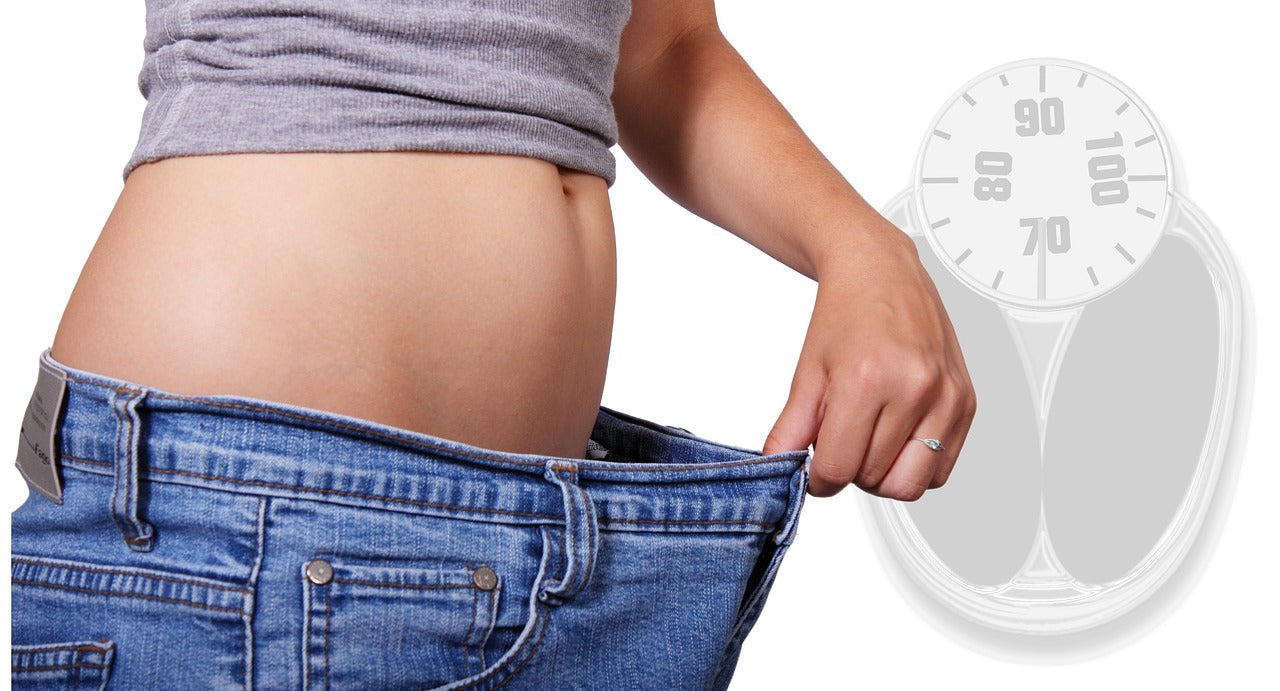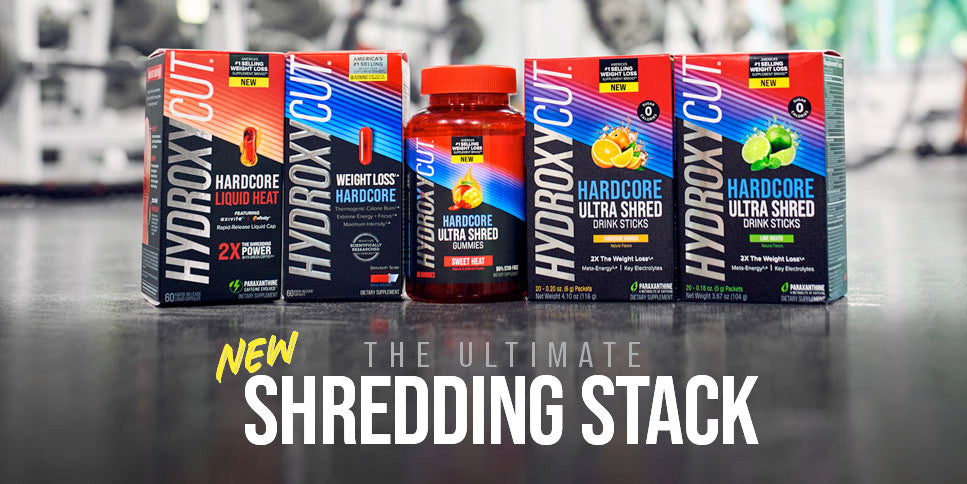Losing weight fast is a goal that many individuals strive for. While it's important to approach weight loss in a safe and sustainable manner, there are science-backed strategies that can help you achieve your goals efficiently.
Remember, losing weight isn't a one-time project; it's a lifelong commitment to a healthier lifestyle. Weight loss goes beyond just enhancing your appearance; it plays a crucial role in promoting a healthier and more fulfilling life.
This is why, instead of succumbing to quick-fix weight loss fads, empower yourself by making a conscious decision to adopt a healthier lifestyle for long-term success.
Table of content
What Influences Your Weight?
Your weight is primarily influenced by your lifestyle, including your food choices and activity levels. While genetics may have a role to play, you can make significant progress towards your weight goals by making changes to your nutrition and incorporating regular exercise into your routine.
Prioritizing your mental health is another crucial element when it comes to achieving a healthy weight. Nutrition and exercising have a big impact on your mental health.
And all this means that embracing good eating habits, a robust fitness regimen, and a positive mindset will create for a holistic approach to better weight management.
Also Read: How to Lose Weight in 8 Weeks?
The Reality of Quick Weight Loss
While it's natural to desire quick weight loss, it's essential to approach it with caution. Quick weight loss is rarely sustainable and often leads to weight regain. Focusing on long-term health and forming habits that can be maintained over time is key to achieving lasting weight loss.
By prioritizing overall well-being and making gradual, sustainable changes, you can achieve your weight loss goals while maintaining optimal health.
Also Read: How to Meal Plan for Weight Loss?
The Science Behind Rapid Weight Loss
Scientific research supports the effectiveness of various strategies for rapid weight loss. Cutting carbs, increasing protein intake, engaging in strength training, and prioritizing sleep are all evidence-based actions that can promote sustainable weight loss.
The concept of consuming fewer calories than you burn, both through physical activity and daily functioning, is known as a calorie deficit. This calorie deficit forms the foundation for achieving weight loss. When you consume more calories than you expend, your weight increases. Conversely, when you consume fewer calories than you burn, you experience weight loss.
By understanding the underlying science, you can make informed decisions about your weight loss journey.
In this comprehensive guide, we'll explore the most effective tips and techniques to lose weight the fastest, all while keeping your health and well-being a top priority.
Also Read: Hydroxycut Weight Loss Gummies: A Unique, Effective Approach to Weight Loss
Moving Your Body Towards Weight Loss
1. Start Walking to Lose those Extra Pounds
Physical activity plays a crucial role in weight control as it helps you burn calories. When it comes to walking, even a moderate amount of exercise can make a difference. Adding just 30 minutes of brisk walking to your daily routine can help you burn approximately 150 more calories a day. The more you walk and the faster your pace, the more calories you'll burn.
Although walking can contribute to weight loss, it's important to note that a combination of physical activity and a healthy diet is typically more effective than exercise alone. Cutting calories and adopting a balanced, nutritious eating plan is key to achieving sustainable weight loss.
Once you have achieved your weight loss goals, exercise becomes even more crucial in maintaining your new weight. Studies have shown that individuals who successfully maintain their weight loss over the long term engage in regular physical activity.
Walking can be an excellent choice for weight maintenance as it is easy to incorporate into your daily routine and can be sustained over time.
Also Read:
2. Strength Training is a Crucial Pick
To maximize calorie burn and boost metabolism, incorporating strength training into your weight loss plan is crucial. This form of exercise not only helps you burn calories during workouts but also triggers the "afterburn effect" known as excess post-exercise oxygen consumption (EPOC). This elevated oxygen uptake post-exercise aids in muscle recovery and enhances metabolism.
The afterburn which is achieved through strength training wins it for me over cardio. Not to say that cardio is bad. By building more muscle, you increase your resting metabolic rate (RMR), which determines the calories your body needs at rest.
With a higher RMR, you can consume more calories without gaining weight. Strength training becomes especially important after age 50 as it counteracts the natural decline in muscle mass, which slows down metabolism.
Also Read:
3. Cardio is a Good-to-Add
Cardio, or cardiovascular activity, is a form of exercise that increases your heart rate and breathing. It provides an excellent workout for your heart and major muscle groups, such as your torso and legs.
Engaging in cardio exercise is effective for shedding fat because it boosts calorie burning.
While strength training may be preferred by some researchers, cardio is a fantastic option for those who find dumbbells uninteresting. Engaging in activities such as running, swimming, rowing, or cycling outdoors can be enjoyable and effective in achieving weight loss goals.
However, as a general guideline, you typically need to burn around 3,500 calories (about 280 minutes of running) per week to lose one pound of fat.
Also Read:
4. Explore HIIT
Recent research suggests that high-intensity interval training (HIIT) may be more effective in reducing subcutaneous and abdominal body fat compared to other forms of exercise. However, the exact mechanisms responsible for the fat reduction caused by HIIT are still unknown.
Regular HIIT significantly improves aerobic and anaerobic fitness levels. It also reduces insulin resistance and leads to various skeletal muscle adaptations that enhance the burning of fat in skeletal muscles and improves glucose tolerance.
High-intensity interval training (HIIT) involves brief but intense exercise sessions followed by periods of low-intensity recovery. Surprisingly, it is one of the most time-efficient ways to work out. Normally, a HIIT workout lasts for 10 to 30 minutes.
Despite its brevity, it can provide health benefits comparable to twice the amount of moderate-intensity exercise. The specific activities involved in HIIT can vary and may include sprinting, cycling, jumping rope, or bodyweight exercises.
Also Read:
Optimize Your Diet and Achieve Your Weight Goals
5. Add More Protein to Your Diet
Protein has the ability to reduce the levels of the hunger hormone ghrelin, while simultaneously increasing the appetite-reducing hormones GLP-1, peptide YY, and cholecystokinin. As a result, it automatically leads to a decrease in calorie intake.
When the body digests and metabolizes protein, approximately 20-30% of the calories from protein are burned. By consuming a high-protein diet, you can burn an additional 80-100 calories per day.
High-protein diets are known to be highly satisfying, which helps to reduce hunger and suppress appetite when compared to diets with lower protein content. This makes it easier to control calorie intake and stick to a healthy diet.
Increasing your protein consumption can also significantly reduce cravings and late-night snacking desires. These changes can greatly facilitate adherence to a healthy diet. It's worth noting that following a high-protein diet can lead to weight loss even without the need for calorie counting, portion control, or carbohydrate restriction.
Also Read:
6. Water is Your Best Friend
Drinking water has a positive impact on weight management by helping to reduce hunger cravings. By swapping sugary drinks for water, you can also lower your calorie and sugar intake.
It's interesting to note that a significant percentage of US adults who attempt to lose weight increased their water consumption.
Increasing water intake can also lead to a decrease in calorie consumption and lower the risk of long-term weight gain and obesity.
To support weight loss efforts, it is recommended to drink 1-2 liters of water per day, particularly before meals. This can help reduce appetite in middle-aged and older individuals, resulting in a decrease in calorie intake and subsequent weight loss.
Also Read:
7. Eat Nutrient Dense Foods
The quality of the foods you consume plays a crucial role in weight loss. Instead of focusing solely on calorie restriction, it's important to prioritize the types of foods you eat.
By focusing on nutrient-dense, plant-based foods, you can fuel your body with the necessary vitamins and minerals while shedding unwanted pounds. Yes, you won't enjoy them as much but it is all worth it. As they say, "Health is wealth".
By reducing your intake of ultra-processed foods, especially carbs and sweets, you can accelerate your weight loss journey. These high-glycemic-load foods, such as sugary snacks, processed carbs, and soft drinks, can hinder your weight loss progress. By cutting back out French fries, chips, and crackers, you'll experience faster results.
8. Your Plate Should Resemble a Rainbow
Incorporating more plants into your diet is another effective strategy for quicker weight loss. Research has shown that a plant-based diet not only promotes weight loss but is also easier to stick to than a low-calorie diet.
Each color in fruits and vegetables represents a unique combination of minerals, vitamins, antioxidants, and phytochemicals. For example, the bright orange color of sweet potatoes is due to beta-carotene.
By diversifying the fruits and vegetables you eat, you ensure that you receive a wide range of nutrients. While there's no need to achieve a specific color combination in every meal, the key is to prioritize variety throughout the day.
However, if your meals mainly consist of white or brown shades, it may indicate a lack of dietary diversity, which can lead to nutrient deficiencies. Avoid relying too heavily on packaged or takeout foods that offer limited vegetable choices.
Moreover, plant-based foods are high in fiber. When you fill your plate with a colorful array of vegetables, you're also loading up on filling fiber that keeps you feeling satisfied for longer periods of time.
Also Read:
9. Try Intermittent Fasting
Intermittent Fasting (IF) has become a popular eating approach that involves restricting eating times to a specific window within the 24-hour day. For example, starting with a 12:12 fast means eating from 8am to 8pm and then fasting from 8pm to 8am. The aim is to gradually increase the fasting period and decrease the feeding period.
The great thing about IF is that you can customize your fasting style and experiment with different approaches to find the one that suits you best. The amount of weight you can lose with IF depends on factors like age, gender, activity level, and lifestyle, but research on IF for weight loss shows promising results.
Also Read:
10. Say Goodbye to Refined Carbohydrates
Cutting back on refined carbs can be an effective strategy for rapid weight loss. By reducing sugars and starches in your diet, you can lower your hunger levels and naturally consume fewer calories.
Consider incorporating a low carb eating plan or replacing refined carbs with whole grains to support your weight loss journey. This shift in your dietary habits can lead to burning stored fat for energy and promote efficient weight loss.
Also Read:
Implement Long-Term Lifestyle and Behavior Changes
Sustainable weight loss begins with making long-term lifestyle and behavior changes. Rather than focusing on short-term diets, it's crucial to adopt healthy habits that promote overall well-being. By thinking of weight loss as a part of getting healthier, you can concentrate on taking care of your body first.
Setting SMART goals - specific, measurable, achievable, relevant, and time-sensitive - can provide you with a clear roadmap to success. By breaking down your weight loss journey into smaller, achievable targets, you can experience significant health benefits.
Losing just 5% to 10% of your total body weight can greatly improve your health and lower the risk of various illnesses, including type 2 diabetes, stroke, cardiovascular disease, and certain types of cancers.
Also Read:
11. Do Not Aim for Ultra Quick Weight Loss
While quick weight loss may seem appealing, it's important to understand the potential risks and limitations. Rapid weight loss can lead to regaining the lost weight and may result in the loss of water, muscle, and bone rather than body fat.
Several studies have shown that the rate of weight loss does not necessarily determine long-term results. Whether you lose weight rapidly or gradually, the key to maintaining weight loss lies in sustainable lifestyle changes.
Also Read:
12. Do not Stress Yourself Over Weight Loss
Losing weight can be challenging, and there are several factors that can hinder your progress. Life stage body composition, physical activity, genetics, and hormones can all impact your ability to lose weight. It's essential to recognize that weight is not the sole determinant of overall health and that multiple factors contribute to our well-being.
Extreme calorie restriction and excessive exercise are not recommended for health reasons. While these approaches may yield quick results, they are rarely sustainable in the long run. The focus should be on improving your overall diet and lifestyle to achieve lasting results.
When it comes to weight loss, maintaining good mental health is paramount. Stress hormones can often hinder progress by promoting weight gain, which is counterproductive to your goals. It's important to practice patience and view weight management as a long-term lifestyle rather than a short-term goal.
Embracing the journey towards a healthier you should be enjoyable, without excessive worry. By prioritizing your mental well-being, you set the stage for successful and sustainable weight loss.
Also Read:
13. Sleep Better to a Healthier Body
Research has shown that sleep is important for your overall health and well-being and for maintaining a healthy weight. Insufficient sleep has been repeatedly associated with a higher body mass index (BMI) and an increased risk of obesity.
Numerous studies have shown that adults who consistently sleep fewer than 7 hours per night are more likely to gain weight compared to those who sleep for 7-9 hours. For example, a comprehensive analysis of 20 studies involving 300,000 individuals found a 41% increased risk of obesity among adults with short sleep duration.
15. Additional Tips in Summary
Also try one or all of these simple and effective tips to get yourself back on track and lose weight faster!
- Exercise between 50-70% of your maximum heart rate (MHR).
- Keep an accurate training log. This helps monitor and evaluate your progress.
- Weigh yourself at the same time in the morning, once a week
- Add skipping to your workouts. A skipping rope is easy to pack and burns massive amounts of calories in a short period of time.
- Train with a partner. Partners help keep the motivation and energy levels up.
- Review your goals every month and set new challenges to maintain continuous progress.
- Schedule early morning workouts. You’ll be energized and ready to take on any challenge for the rest of your day.
- Break out of your comfort zone and try new activities like spinning, yoga or dancing.
- Reward yourself. Treat yourself to something special like a massage or a night at the movies once you’ve reached your monthly goal.
- Make exercise a family affair. Having your family with you during activity can help to maintain motivation and inspire one another.
The Importance of Sustainable Weight Loss
Sustainable weight loss is crucial for long-term health and well-being. While quick fixes may provide temporary results, they often lead to weight regain and can have adverse effects on your overall health. By adopting a holistic approach to weight loss, you can achieve sustainable results that positively impact your metabolic health.
Personalized Tips for Rapid Weight Loss
It's important to recognize that everyone has unique needs and different eating styles. While there are general principles that apply to weight loss, it's essential to find the approach that works best for you.
Personalized tips offered by your coach such as increasing your vegetable intake, or increasing exercise complexity or duration can contribute to a healthy weight loss journey. It never harms to take professional advice for weight loss.
Begin Your Weight Loss Journey Today!
In conclusion, losing weight quickly is a goal that many individuals aspire to achieve. By implementing long-term lifestyle and behavior changes, optimizing your diet, and incorporating science-backed strategies, you can experience sustainable weight loss.
It's important to approach quick weight loss with caution, as sustainability and overall health should be prioritized. By adopting a holistic approach to weight loss and making gradual, sustainable changes, you can achieve lasting results and improve your overall well-being.
Remember, consult with a healthcare professional before embarking on any weight loss journey to ensure your safety and well-being.
*The links used in this article are being provided as a convenience and for informational purposes only; they do not constitute an endorsement or an approval by Iovate Health Sciences International Inc. or any of its affiliates (“Iovate”) of any of the products, services or opinions of the corporation or organization or individual. Iovate bears no responsibility for the accuracy, legality or content of the external site or for that of subsequent links. Contact the external site for answers to questions regarding its content.
Read More Blogs:
- How to Tone your Body without going Ga-Ga?
- Hydroxycut Weight Loss Gummies: A Unique, Effective Approach to Weight Loss
- Electrolyte Water - Top Benefits and Famous Myths
- 11 Steps to Achieve a Toned Woman's Body
- 11 Low Calorie Fruits to Add to Your Weight Loss Diet Plan
Our Most Read Content:
Safe & Effective Weight Loss Products
Hydroxycut is safe for healthy adults to use as directed on the label.



